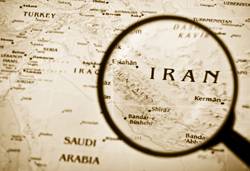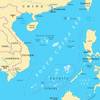Shipping and Sanctions: What You Need to Know
Economic sanctions, imposed by national and international governments for a variety of political reasons, can be snare traps for unsuspecting maritime enterprises. For the maritime industry, port calls in any nation against which sanctions have been imposed should be undertaken with caution. As this article illustrates, there are additional ways to run afoul of economic sanctions, but trading in a prohibited manner with a sanctioned nation is the most common.
From the maritime perspective, economic sanctions come in three flavors. First, there are sanctions that apply directly to the maritime industry. An example is the United States regulation that states: “No vessel that enters a port or place in Cuba to engage in the trade of goods or the purchase or provision of services, may enter a U.S. port for the purpose of loading or unloading freight for a period of 180 days from the date the vessel departed from a port or place in Cuba.” You cannot get more direct than that.
The second flavor of economic sanctions is those that apply indirectly to the maritime industry. An example is the United Nations Security Council resolution that prohibits the export to Iran of specific materials for nuclear enrichment. Involvement in such prohibited exportations would subject the vessel and its owner to potential administrative or judicial action.
The third flavor of economic sanctions is those that would not in usual circumstances apply to the maritime industry. An example is the UK regulation freezing the funds of persons engaged in the North Korea nuclear weapons program. The freezing of funds, by itself (as opposed to the actual export to North Korea of nuclear material), does not directly impact the maritime industry.
The governments that tend to impose unique economic sanctions are relatively few. The United Nations Security Council (UNSC) imposes the broadest sanctions. These apply to all persons and entities world-wide. Actual enforcement is left up to individual nation states, but these sanctions tend to be quite effective in achieving their immediate goal (the long-term goal is often more elusive). Currently, there are UNSC sanctions applicable to the Democratic Republic of Congo; Cote D’Ivoire; the Democratic People’s Republic of Korea (North Korea); Eritrea; Iran; Lebanon; Somalia; Sudan; and individuals and entities associated with the Taliban and/or Al-Qaida. Various nations have institued sanctions intended to implement, in one form or another, sanctions adopted by the UNSC.
The European Union (EU) has adopted a number of economic sanctions. Most of these sanctions are targeted at human rights issues. A recent EU sanction, though, directly and indirectly impacts the maritime industry. On 23 January 2012, an EU Council Decision was promulgated that, among other things, prohibits (effective 1 July 2012) the import, purchase, or transport of Iranian crude oil and petroleum products by any person or entity subject to EU jurisdiction. This is a wide-ranging sanction that applies not only to the carriage of Iranian crude oil and petroleum products as cargo, but to the purchase of such items as bunkers derived from Iranian crude oil. Various bunker suppliers world-wide have been endeavoring to establish protocols to ensure that their bunkers are not associated with Iran. Ship owners and operators should institute procedures to avoid purchasing bunkers in situations where the source of the petroleum is questionable in this respect.
Australia has adopted various autonomous (or unilateral) economic sanctions. Many of these sanctions are similar to UNSC sanctions. Possibly the most unique Australian autonomous sanction prohibits the supply, sale, or transfer to Fiji of arms and related material.
Japan has various restrictions related primarily to end-use controls on militarily sensitive goods and technologies. An export license is required for exportation of such goods and technologies and will not be granted where the end user is on the prohibited list.
The United Kingdom (UK) has imposed economic sanctions that mostly control the export of arms and certain dual-use items. Financial sanctions also apply to transactions with terrorist organizations such as Al-Qaida.
The United States has by far the most extensive unilateral sanctions programs. Countries that are subject to US economic sanctions include: Belarus; Burma; Cote d’Ivoire; Cuba; the Democratic Republic of the Congo; Iran; Lebanon; North Korea; Somalia; Sudan; Syria; Yemen; and Zimbabwe. In addition, there are sanction programs related to counter narcotics trafficking; counter terrorism; non-proliferation of nuclear material; the rough diamond trade; and transnational criminal organizations. Virtually all trade with North Korea or Iran by persons subject to the jurisdiction of the United States is prohibited. Most trade with Cuba is also prohibited. Imports into the US of Burma (Myanmar) origin goods is largely prohibited. Most trade with the Government of Syria or anyone involved with the Government of Syria is prohibited. US persons are prohibited from engaging in any transactions or activities related to the petroleum or petrochemical industries of Sudan without prior US authorization.
One less known way to run afoul of US sanctions is to deal with a “blocked vessel”. A blocked vessel is a vessel that is owned or controlled by a nation, entity, or person that is itself subject to sanction. Persons subject to US jurisdiction should avoid buying, chartering, booking cargo on, or otherwise dealing with blocked vessels. There is a list of blocked vessels, but it is not well-publicized and is subject to change without prior notice.
One of the problems regarding the sanctions programs is that there is often no advance notice of implementation. One day a particular activity or trade is authorized – the next day that activity or trade is subject to a sanction. Governments imposing the sanctions invariably do a poor job of announcing and explaining the sanctions. This is not to say that they don’t make the information public, but they often issue obscure news releases and post the information electronically on websites that are frequented only by a select group of persons. Thus, unless a particular sanction is wide-ranging, it may be an extended period before the information is well-known and understood by the maritime industry and other affected groups. If compliance (rather than punishment) is the goal of these governments, it behooves them to do a better job of disseminating useful information concerning those sanctions to all who might be affected thereby.
Members of the maritime industry must also do their part. They must work to follow developments related to economic sanctions. They also must adopt and implement programs to reduce the risk of non-compliance with applicable sanctions. Having a reasonable sanctions compliance program will go a long way to convincing an enforcement agency that any non-compliant event was truly accidental as opposed to negligent or intentional.
(As published in the August 2012 edition of Maritime Reporter & Engineering News - www.marinelink.com)
















